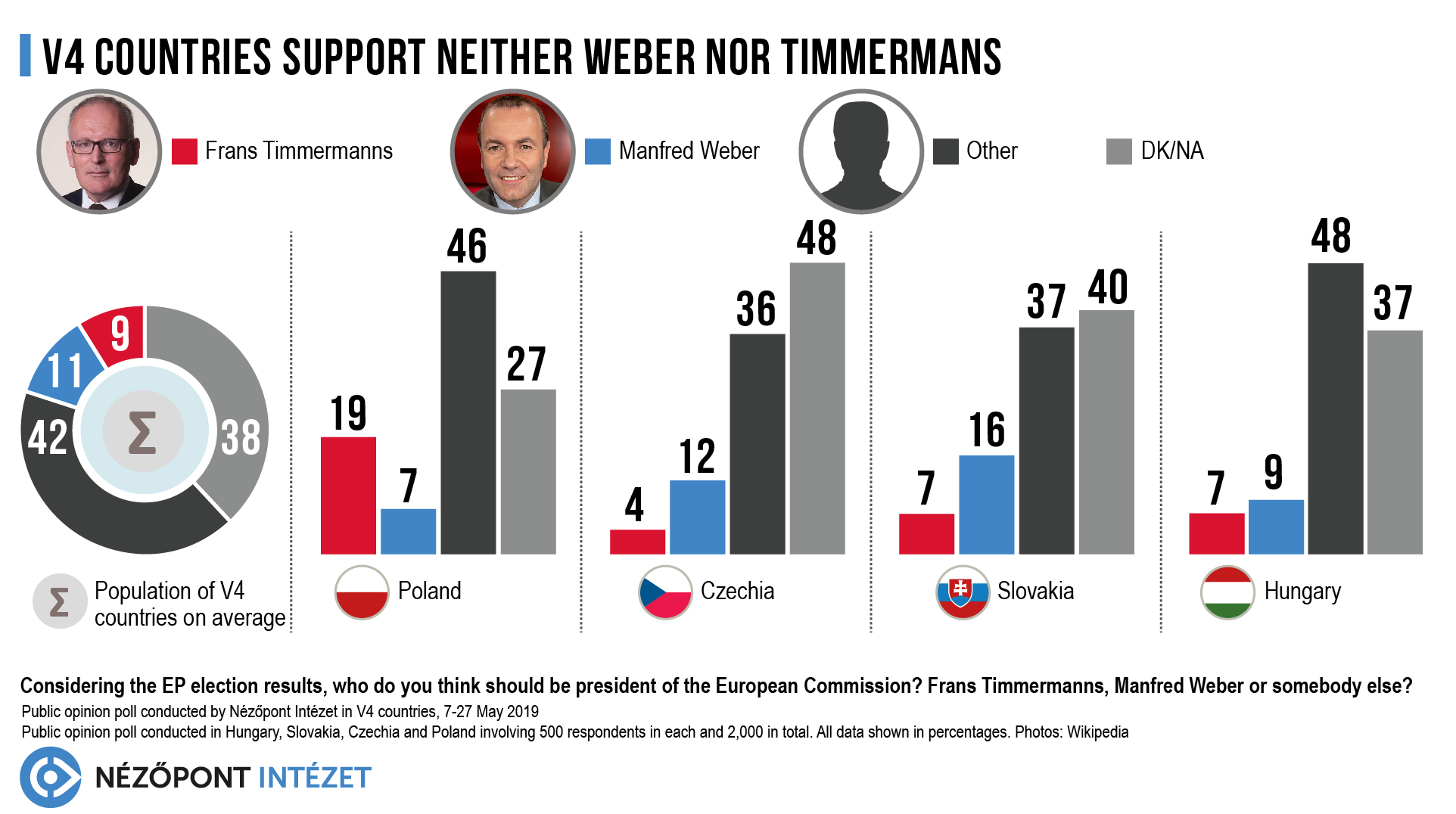The vast majority of people living in the V4 countries (80 percent) do not want Manfred Webert or Frans Timmerman to be President of the European Commission, according to a poll conducted by Nézőpont Intézet in V4 Member States Hungary, Slovakia, Czechia and Poland.
On average, only one out of five (20 percent) supports either candidate, but there are more than twice as many in the region (42 percent) who would definitely want someone else for the position.

Both politicians are rejected by a large number of people in all V4 Member States, and even when referred to directly by name, only 11 percent of respondents said they supported Manfred Weber and 9 percent Frans Timmerman. This ratio is rather low considering that the total result of parties supporting either top candidate in their campaign averages 35.2 percent. Hence neither top candidate has a significant support base in V4 countries as only somewhat more than half of the supporters of the parties in question back them.
In Hungary not even 1 person out of 10 on average would like to see either Timmermanns (7 percent) or Weber (9 percent) in the presidential seat. Half of Hungarians (48 percent) would like someone else as leader of the Commission. In Poland parties of the People’s Party and Socialist coalition have received 38.47 percent of the votes in vain, as the two party families’ top candidate is supported by 27 percent of the people only.
In Slovakia, even less than half of the 15.72 percent voting for a disappointing SMER (7 percent) support the presidential candidate of the Socialist party family. Frans Timmermans, who has been well received by the Polish opposition due to the procedure against PiS, is most popular in Poland (19 percent). In Slovakia, Manfred Weber is the more popular top candidate (16 percent), however, even in these countries at least twice as many people (46 and 37 percent) would rather see somebody else as president of the Commission. The V4 Heads of Government therefore go to Brussels with a strong mandate, and their hands are not tied by the electorate’s expectations in relation to the top candidates.
Methodology
Nézőpont Institute conducted the computer assisted telephone interviewing survey (CATI) between 27 May and 7 June 2019 in V4 countries Czechia, Poland, Hungary and Slovakia involving 500 respondents in each country or 2,000 in total. The sample is representative of the population aged 18 and over by gender, age, region, settlement type and educational level. All data are shown in percentages and may vary from 100 due to rounding.
